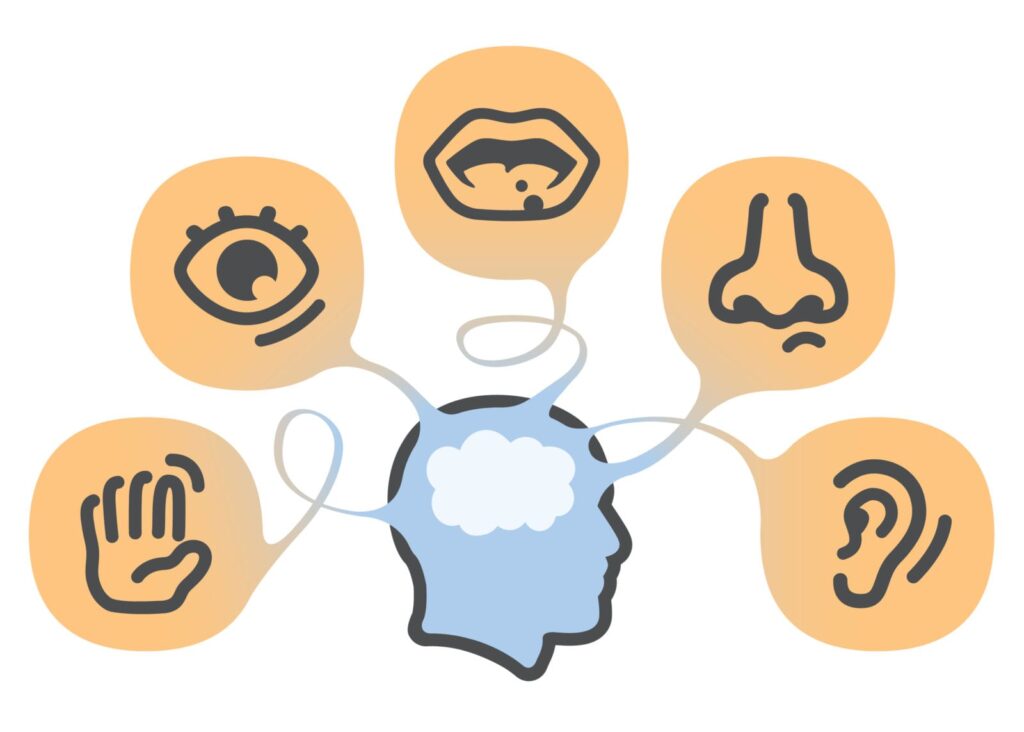Sunny Psychology Maroochydore
Trauma - PTSD
Trauma is a disorder of the memory
People without Post-Traumatic Stress Disorder, or PTSD for short, find it strange when someone who’s experienced something intense cannot “get over it”. After all, it has been a while, they should move on, right? Well, not exactly. Post-Traumatic Stress Disorder is an involuntary neurobiological reaction of the body to an event, or range of events, that took place longer than two weeks ago. Trauma is a disorder of the memory. This means that the incident(s) that occurred have not been stored in the semantic (factual) memory and instead are dis-ordered. Like a box with photos that has not yet been organised. As a result, the body reacts to triggers and it can feel like the incident(s) is(are) happening all over again. And again. And again.


Sunny Psychology
Triggers
A trigger is an event or situation that causes a reaction. We can be triggered by many things. Think of a painful experience at the dentist and you may still shiver when you think about the smell of the leather chair you sat in. Or when you were in car accident while on a roundabout and even though no one was severely hurt, every time you now enter a roundabout you feel nervous. Other examples of triggers are: smells, sounds, touch, the date on the calendar or season, a colour, a song or an internal sensation.
Triggers can bring back happy memories, such as Christmas carols, because they remind you of happy family times. Triggers can also bring back unhappy memories and feelings. Those same Christmas carols, can remind you of the time your parents split up over Christmas dinner and since then they fought over who would get to see you and your siblings for the Holidays.
When these triggers happen regularly, they can cause the symptoms mentioned here. Without processing the trauma, you are likely to continue to be triggered and the symptoms often worsen over time. The mind’s logical response to avoid the trigger(s) usually leads to new problems and even diagnoses (e.g. anxiety or substance misuse).

Factors that can lead to (Complex) Post-Traumatic Stress Disorder (PTSD)
Not every traumatic event turns into the diagnosis of PTSD. This is why some people can shrug their shoulders and say “that happened to me and I turned out fine”, despite having faced shocking life events. The chance of a traumatic event turning into PTSD, or even Complex PTSD (C-PTSD) has to do with these three main factors:
When did the trauma occur?
The younger the person is when the trauma takes place, the more likely it is the trauma will leave a mark, especially if the factors below were also present;
Who caused the trauma?
Trauma caused by an attachment figure. Harmful behaviours performed by a person who was supposed to be trusted (e.g. family member, teacher, church leader) is often more damaging than when it happens by a stranger or if the trauma was situational.
For example., a cyclone can be very scary, but if the parents have taken careful precautions and can remain calm during the event, the child is more likely to be protected from psychological harm due to the safety provided by their parents.
How long did the trauma continue for?
A one off event can be very traumatic. An ongoing, regular exposure to trauma alters brain development, hormonal balance and increases physical ailments such as diabetes and heart disease.
As you can read, the worst case scenario is when the trauma happened at an early age, was performed by a person of trust and the events went on for a longer period of time. It meant the child had no escape and likely little to no control and therefore their core sense of safety was altered to an oftentimes permanent state of unsafety. This shows up in their self-image, how they form relationships and their overall success and joy in life. Having said this, a one-off trauma can still leave a permanent mark, especially when not addressed.
Trauma
Control and PTSD
A fourth factor that influences if an event becomes traumatic, is if the person felt a sense of control at the time of the event or did they remain powerless for the entire time and sometimes even after?
The more control someone can take, the better the outcome. Remember the examples about the car accident and the Christmas fight at the ‘triggers’ section? If you were able to regain control over that car and prevented the accident from becoming fatal, or if you moved out shortly after your parents divorced on that Christmas day and started your own life, you may really be “fine”.
However, if you felt out of control for a period of time, the chance of developing PTSD increases significantly.
The longer you weren’t in control, the more severe the symptoms tend to be. It may look like you are doing ok, but slowly insomnia, anxiety, mood swings and jumpiness can worsen and you feel out of control again. As time passes, your symptoms may start to look like generalised anxiety, depression or substance use, for which you may get diagnosed and treated, with medication and/or therapy. Over time this treatment is oftentimes ineffective as the symptoms are addressed, but not the core of the problem. It is a bit like taking pain relief and brushing your teeth, when you really need a root canal treatment.
PTSD versus Complex- PTSD
Based on the different types of trauma someone can be exposed to, the duration of this trauma and if they felt in control of the symptoms can differ. Research literature shows clear differences between PTSD and Complex PTSD (C-PTSD), as reported by the ICD-11 (a medical classification list by the World Health Organization called the International Statistical Classification of Diseases and Related Health Problems, 11th revision).
Symptoms of PTSD
- Re-experiencing
- Flashbacks
- Nightmares
- Avoidance
- Avoidance of thoughts, feelings, conversations
- Avoidance of people, places and activities
- Sense of threat/hypervigilance
Symptoms of Complex PTSD
- Re-experiencing
- Flashbacks
- Nightmares
- Avoidance
- Avoidance of thoughts, feelings, conversations
- Avoidance of people, places and activities
- Sense of threat/hypervigilance
- Emotion regulation difficulties (anger, mood swings)
- Negative self-concept
- Feeling Worthless and/or guilty
- Feeling disconnected from others
Treatment programs for C-PTSD focus on reduction of social and interpersonal avoidance, development of a more positive self-concept and relatively rapid engagement in the review and meaning of traumatic memories.
Sunny Psychology
A (C-)PTSD diagnosis
A diagnosis of (C-)PTSD is helpful to set the direction for treatment. And there is hope, because PTSD is not a life sentence, it does not have to be permanent. With a trained trauma therapist, regular sessions and a bit of bravery from your end, you can make a full recovery. You will not be who you were before, because that is in the past. Instead, you will stop bringing the past into the present, so that you can welcome who you are and who would like to be today and fully enjoy all the gifts that life has to offer.
Continue reading here to learn about the Evidence-Based treatment for PTSD.









